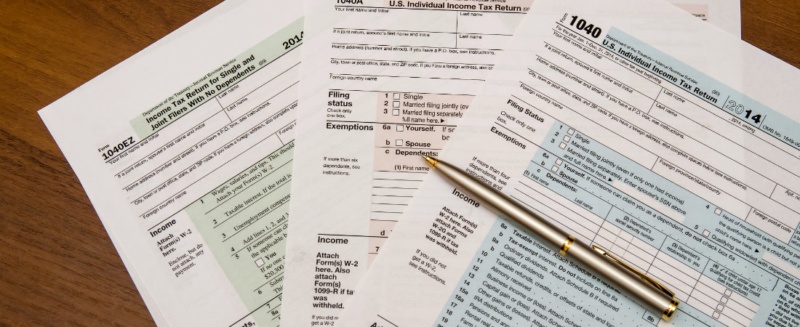The college years are an exciting and difficult time: From tuition payments to Free Application for Federal Student Aid (FAFSA) forms to full or part-time employment, college may be the first time young adults are in charge of their own finances.
With more financial freedom comes added responsibility, including a duty to pay Uncle Sam. Even adults who have been working for years have trouble with taxes, so it’s no surprise that college students are often overwhelmed after their first experience with the IRS.
If you’re a college student, or a parent of one, here are a few things to keep in mind.
A common myth: My earnings aren’t taxable
I get questions all the time from students who are surprised that they have to pay taxes on their wages. The reality is, college students’ earnings are taxable, just like everyone else’s. Even if a student has made too little to file—the threshold is $10,000 for people 65 and younger—it’s a good idea to file taxes and get a refund of any federal income tax withheld.
Additionally, students who work as bartenders, waitresses, or in other industries where they may receive tips should report those tips to their employer so they can be added to the paycheck. Otherwise, the tips will have to be tracked and reported on Form 4137 when a student files his or her tax return.
These calculators can help students determine whether they’re going to owe any taxes:
Dependents can’t claim personal exemptions
Full-time college students under age 24 should not file their own tax returns without first talking to their parents. Students who meet those criteria can be claimed as a dependent on their parents’ tax returns and cannot claim their own personal exemptions.
If a student files without taking that into account, he or she could be contacted by both the IRS and state, trying to determine who gets to claim that personal exemption.
This is also true for education credits, such as the American Opportunity Tax Credit and the Lifetime Learning Credit. If a parent claims a college student as a dependent, that parent may be eligible for those credits, but the college student is not.
Scholarships can be taxable
If a college student receives a scholarship or fellowship grant, all or part of the amount may be tax-free. As long as the scholarship is used only to cover tuition, fees, books, and course supplies, it isn’t taxable. However, if a portion of the scholarship or fellowship grant is used to cover room, board, travel, and living expenses, that income is taxable.
Students must also include as income any payments received for teaching or research that was required to receive the scholarship or grant.
Under an educational assistance program, a college student’s employer may pay up to $5,250 of that student’s education costs, tax-free, to the student. If an employer pays more than that amount during the year, the student will typically have to pay taxes on the overage.
Unpaid student loan debt can have tax ramifications
In addition to taxable scholarships, failure to pay back student loans can also have a negative impact.
If a student defaults on student loan debt, his or her tax refund can be used to pay the debt owed. This also applies if that student defaults on the loan, gets married, and files a joint tax return. All or part of the tax refund can be used to pay the debt owed, even if the debt belongs to only one spouse. (The spouse who does not owe the debt can file Form 8379, the Injured Spouse Allocation form, to protect his or her share of the joint tax refund.)
Additionally, if a student’s loan is cancelled, forgiven, or discharged, that student could be required to pay taxes on the amount of the debt that was unpaid.
However, student loans that are cancelled after an obligation—such as working in a certain profession for a certain time period—is fulfilled will not result in taxable income. Students may want to consider asking their educational institutions or lenders about qualifying programs.
Defaulting on student loans can have far-reaching, long-lasting impacts. Even one late payment can affect a student’s credit score long after college graduation because payment history is weighted the most heavily when the credit reporting agencies (CRAs) calculate credit scores. A poor credit score, between 280 and 559, could make it difficult to take out new lines of credit, and it could also make borrowing more expensive in the form of higher interest rates.
The IRS has more information about taxes and education on its website. Be sure to do your research so you know you’re getting all of the appropriate credits and deductions.
Eva Rosenberg, EA is the publisher of TaxMama.com ®, where your tax questions are answered. She is the author of several books and ebooks, including Small Business Taxes Made Easy. Eva teaches a tax pro course at IRSExams.com and tax courses you might enjoy at http://www.cpelink.com/teamtaxmama.
[amazon_link asins=’1524763438,B00ED3GU1I,B01H5FYNX2,B00TECQ2CU’ template=’ProductCarousel’ store=’thinkglink-20′ marketplace=’US’ link_id=’c1e6b6ce-1cae-11e8-baea-2540595312eb’]






